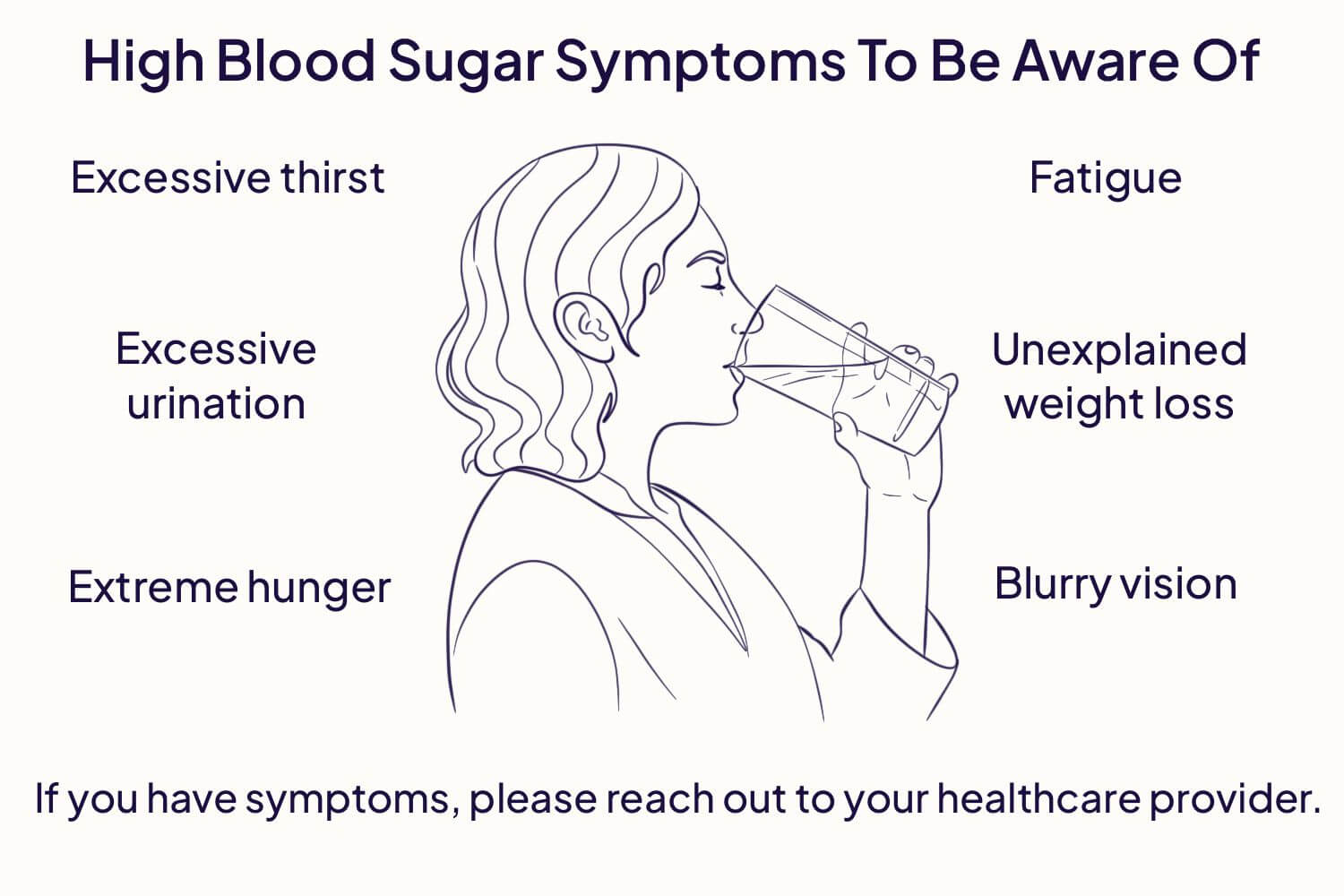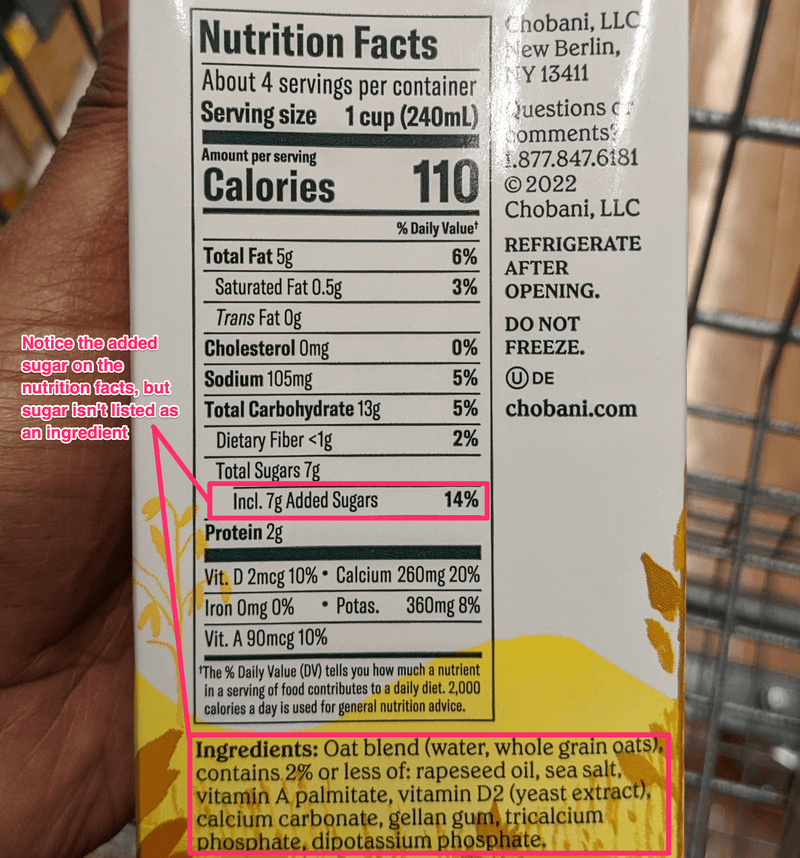Many of us, including myself, are turning to a more plant-based diet to stay healthy. This often means switching to dairy-free milk alternatives like oat milk.
Oat milk is growing in popularity, and I have to say that out of all the plant-based milk out there, it’s my favorite in terms of texture and taste as a replacement for dairy.
However, oat milk has one of the higher carbohydrate and sugar contents of all plant-based milk, which begs the question: does oat milk spike blood sugar, and what impact can this have on your health?
Below I’m going to explain why the answer to this question isn’t as straightforward as you might think and give you the information you need to decide whether oat milk is the right plant-based milk for you.
Quick Answer
Does oat milk spike blood sugar?
Yes, oat milk can increase blood sugar levels due to the presence of maltose, a high-glycemic sugar that accelerates blood sugar more rapidly than other carbohydrates. Even if the oat milk is unsweetened, it still contains sugars that can spike blood glucose levels.
Understanding Blood Sugar
Before jumping into oat milk’s impact on blood sugar, I want to briefly explain what blood sugar is and how it’s impacted by the food we eat.
Blood sugar is the amount of sugar (glucose molecules) in the bloodstream.
We use glucose as our primary energy source - when we eat foods, especially those high in carbohydrates, our body breaks them down into glucose during digestion.
This broken-down sugar is then absorbed into the bloodstream, temporarily increasing our blood sugar level.
The foods and drinks we consume impact our blood sugar levels.
Foods high in simple sugars, like white bread, processed snacks, and table sugar, cause a rapid spike in blood sugar (essentially, the body can break them down into glucose quickly, so it's like dumping them straight into the bloodstream).
Foods with complex carbs, such as veggies and whole grains, like oats, take more work for the body to break down.
This means it absorbs the sugar content more slowly, leading to less rapid spikes in blood sugar.
Impact of Blood Sugar Spikes on Your Body
So why does blood sugar matter? Your blood sugar levels can impact many areas of your health.
If your blood sugar is constantly elevated (which is generally around 126 milligrams per deciliter - mg/dL - fasting or 200 mg/dL in a random reading), you can run into several health issues, including:
- Energy crashes: spiking your blood sugar can cause you to have fluctuating energy levels, making you feel tired or lethargic
- Mood swings: blood sugar spikes can affect your mood, increasing irritability or causing brain fog
- Hunger and cravings: eating sugary foods that spike your blood sugar can leave you feeling hungry and wanting more high-carbohydrate foods
- Diabetes complications: if you have hyperglycemia (elevated blood sugar), you increase your risk of developing diabetes or related conditions like kidney disease, cardiovascular issues, and eye health problems.
- Weakened immune system: high blood sugar can impact your immune system, making you more susceptible to infections like UTIs or yeast infections.
Here's an illustration from Health.com other common symptoms of blood sugar spikes.

What is the Glycemic Index?
If you’re worried about your blood sugar levels, it helps to monitor your sugar intake.
One tool that can help is the Glycemic Index (GI). The GI is a scale that ranks carbohydrates based on their impact on blood sugar levels.
Foods with a high GI cause a rapid spike in blood sugar, and foods with a low GI score are better for your blood sugar.
The scale ranges from 0 to 100, with foods with a GI rating of 70 or above considered high and 55 or less being low impact.
While oat milk doesn’t have an official GI score, one serving of rolled oats has a GI of 55. Although this indicates that oat milk would also be low on the GI scale, that’s not necessarily true.
Here's a helpful video from Health Coach Kait with more info about the Glycemic Index and how certain foods may affect your blood sugar levels.
In the next section, I’ll explain why oat milk has a higher GI and can have a relatively big impact on blood sugar levels.
Does Oat Milk Spike Blood Sugar?
The short answer to whether oat milk will spike your blood sugar levels is - yes, most likely.
However, oat milk's impact on your blood glucose is based on a few different factors, starting with the amount and type of sugar in your oat milk product.
What Sugars are in Oat Milk?
First and foremost, it's important to remember that every single oat milk product on the market has a different manufacturing process and ingredient list.
Some brands use whole-grain oats to make their product, while others use processed oats. This will directly impact the way your body processes it and its impact on your blood sugar.
Oat milk has around 7 to 24 grams of carbohydrates, with 16 grams of carbs being pretty standard for most brands.
These carbohydrates can be made of natural or added sugars.
Added Sugars
Some brands add sugar to sweeten the product, such as brown sugar, agave syrup, maple sugar, table sugar, or cane sugar.
For example, Elmhurst 1925 Sweetened Milked Oats has about 4 grams of added cane sugar, and Willa’s Barista Oat Milk has 3 grams of added sugar (maple syrup).
Any oat milk that contains added sugars like these can impact your blood sugar.
This is because these are simple sugars - your body breaks them down and absorbs them quickly, which can temporarily increase your glucose levels.
For reference, common added sweeteners have the following GI scores:
Sweetener | Glycemic Index |
|---|---|
Cane Sugar | 60 |
Molasses | 55 |
Maple Syrup | 54 |
Coconut Sugar | 54 |
Dates | 31 - 60 |
Agave | 11 - 19 |
Natural Sugars
Even without added sugar, oat milk is high in natural sugars. Oats naturally contain a sugar molecule called maltose.
Many oat milk manufacturers use an enzyme to break down the oats into a kind of slurry during processing, which allows them to keep the nutrients and natural sugars in the final product.
The high maltose content is why oat milk is high in carbs, even without added sugars.
For example, Elmhurst 1925 Unsweetened Milked Oats has 0 grams of added sugar listed but 17 grams of carbs.
Even more confusing is that many oat milk brands will have added sugars listed (Chobani Oat Milk Original - 7 grams or Malk Original Oat Malk - 5 grams) but don’t contain extra sugar per the ingredients list.

This is because the FDA decided they had to label maltose as an added sugar - even if there was no other added sweetener in the product.
Why?
Because even though it’s a natural sugar, our bodies break down maltose the same way as added sugars like cane sugar.
Maltose has one of the highest ratings on the GI scale, at 105, compared to table sugar, at 65.
This means that even unsweetened oat milk products can spike your blood sugar.
Factors that Affect Oat Milk’s Blood Sugar Impact (It’s Complicated)
So here’s the thing about blood sugar - knowing how much a food will impact your blood sugar levels is not a straightforward calculation.
While we know that high GI foods and sugars DO spike blood sugar, everyone has a unique biochemical makeup that processes sugars differently.
People have been using continuous glucose monitoring (CGM) devices to track blood-sugar levels in the past few years.
While it’s highly anecdotal, these devices seem to show that multiple factors impact blood sugar - not just whether you eat a high-carb/sugar food.
For example, the amount of fiber in a food can impact how it does or doesn’t spike your blood sugar.
Oat milk typically contains some fiber - about 3 grams, which can help minimize its impact on your blood sugar.
The specific type of fiber found in oats, called β-glucan, is known to have a beneficial impact on foods’ Glycemic load.
However, how oats are processed can damage the structure of this fiber.
It’s best to choose an oat milk brand, like Elmhurst 1925, that uses the whole oat and does minimal processing to get the highest amount of fiber to limit the drink’s potential effect on your blood sugar.
There are also several reasons you may see a bigger spike in blood sugar after drinking oat milk - aside from its carbohydrate content:
Caffeine Intake
If your body is sensitive to caffeine, this can cause your blood sugar levels to spike.
If you enjoy oat milk or an oat-based creamer in your coffee, you may need to monitor your blood sugar after your morning cup.
Combining caffeine and oat milk sugars may cause blood sugar spike effects like tiredness or appetite fluctuations.

Dehydration
Dehydration can worsen the effects of glucose intake because your body doesn’t have enough water to dilute the sugars.
If you are already dehydrated and opt for oat milk with added sugars, it can cause a bigger blood spike than if you had more hydration.
Not Eating Enough
since fiber and other nutrients can impact blood sugar levels, eating enough of the right type of foods can minimize oat milk’s impact on your blood sugar.
For instance, using oat milk in chia pudding or overnight oats can give you more fiber, reducing the potential blood sugar increase.
Final Thoughts and Research
To date, only a few studies have been done on the impact of oat milk on blood sugar levels.
This is likely because oat milk has only recently gained popularity as a plant-based beverage.
A recent 2023 review looked at the glycemic response of milk and plant-based drinks and found that oat milk may have a GI of around 59, with 7.98 glucose per 250 grams (about 8 ounces).
This was higher than most items studied, including regular milk, ice cream, and other plant milk besides coconut (GI 96) and rice (GI 86).
A 2017 study also found that oat milk has a GI of around 59, citing the β-glucan fiber as the reason for a reduced GI despite high maltose content.
Another 2021 study mentions that carbohydrate hydrolyzing enzymes (like α-amylase) can help release phenolics (a type of metabolite), reducing GI values by inhibiting digestive enzymes.
However, the study mentions that more research is needed.
What does all this mean?
The bottom line is that oat milk contains natural sugars that can spike your blood sugar.
If you have diabetes or are watching your sugar intake, you should probably choose another type of plant milk, such as almond, to ensure stable blood glucose levels.
However, since every brand of oat milk uses a different process and each person’s metabolism and gut microbiome is different, it’s hard to say just how much oat milk might impact you.
Generally, we recommend organic or additive-free oat milk products as the healthiest option.
While it may have a minimal impact on blood sugar, a serving of unsweetened oat milk per day can be part of a healthy, balanced diet for most people.
